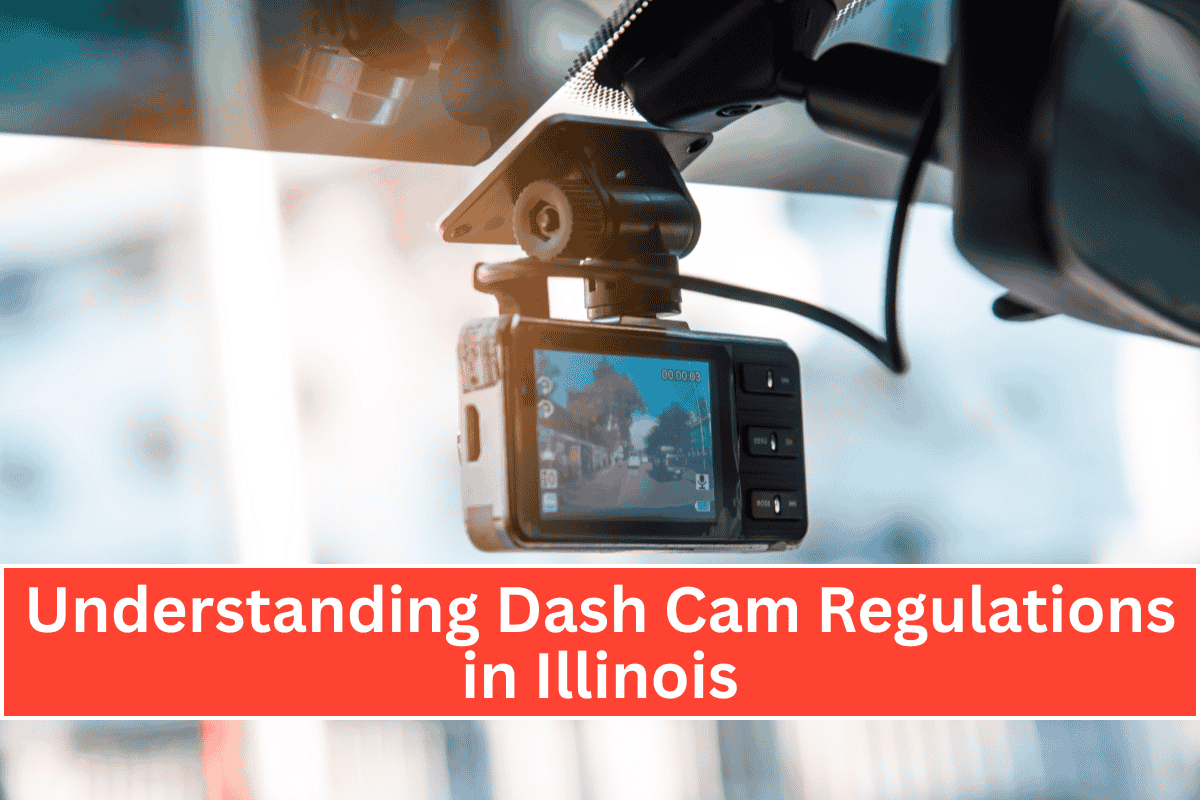Dash cams have become an essential tool for drivers in Illinois, helping them document their journeys and provide valuable evidence in case of accidents.
However, the use of dash cams is subject to strict legal requirements in the state, particularly when it comes to privacy and compliance with various regulations. Here’s an overview of Illinois’ dash cam laws and the key considerations for lawful use.
Legal Requirements for Dash Cam Use in Illinois
Eavesdropping Laws and Audio Recording
One of the most important legal aspects of using dash cams in Illinois is the state’s eavesdropping law, which is among the strictest in the U.S. According to the Illinois Eavesdropping Act, it is illegal to record private conversations without the consent of all parties involved.
If your dash cam records audio, you must ensure that everyone in the vehicle or within hearing distance is aware that they are being recorded and has given explicit consent. Unauthorized audio recordings are considered a Class 4 felony, punishable by:
1 to 3 years in prison
Fines up to $25,000
This means that simply installing a dash cam with audio recording capabilities doesn’t automatically make it legal; proper consent is required from everyone who could be recorded.
Dash Cam Placement and Obstruction Laws
Illinois law also governs where and how dash cams can be installed in vehicles. Under the Illinois Vehicle Code, windshields and windows must remain unobstructed so the driver can maintain a clear view of the road.
Dash cams should be placed in areas that do not interfere with the driver’s view, such as behind the rearview mirror or in a corner of the windshield. If a dash cam obstructs the driver’s vision, it could result in:
Traffic citations
Fines
Liability for accidents caused by obstructed visibility
To stay compliant, make sure the dash cam is positioned correctly and does not obstruct any important safety features like airbags or mirrors.
Privacy Concerns and Compliance
Eavesdropping and Consent
As mentioned, consent is key when using dash cams that record audio. The Illinois Eavesdropping Act requires that all parties in a conversation know they are being recorded, and consent is obtained before any audio recording takes place.
This law also applies to both passengers in the vehicle and people outside the car who may be caught on audio.
Biometric Information Privacy Act (BIPA)
Another critical law to consider in Illinois is the Biometric Information Privacy Act (BIPA). While primarily designed to regulate the collection of biometric data such as fingerprints and facial recognition, BIPA can apply to dash cams equipped with facial recognition technology.
Under BIPA, anyone who collects biometric data, including facial images, must:
Notify individuals that their data is being collected
Obtain written consent for the collection of biometric information
If a dash cam is equipped with facial recognition capabilities, drivers must be aware of these requirements and ensure they comply to avoid legal complications.
Admissibility of Dash Cam Footage in Court
Dash cam footage can be used as evidence in Illinois courts, but its admissibility depends on several factors:
Relevance: The footage must be relevant to the case at hand, such as documenting an accident or traffic violation.
Authenticity: To ensure the footage is valid, it must be authentic and unaltered. This often requires testimony from the driver or installer about the operation of the dash cam.
Chain of Custody: Proper documentation is required to maintain the chain of custody of the footage, ensuring that it has not been tampered with or altered.
Additionally, if audio has been recorded without consent, it can lead to the footage being excluded as evidence due to its unlawful nature under Illinois law.
Insurance Implications of Dash Cam Use
Dash cams can play a significant role in insurance claims by providing objective evidence of what happened during an accident. This can expedite the claims process and help clarify fault. While dash cams are not required in Illinois, many insurance companies encourage their use and may offer discounts for drivers who have them.
However, policyholders should exercise caution when sharing dash cam footage with insurers. If the footage includes audio or biometric data, it’s important to understand the potential legal implications of sharing that information. Illinois law does not require you to provide dash cam recordings to insurers, so it’s a good idea to review your policy and understand any requirements or benefits related to dash cam use.
Penalties for Non-Compliance
Illinois imposes strict penalties for violating dash cam laws. These include:
Eavesdropping violations: If you record private conversations without consent, you face a Class 4 felony, which can result in 1 to 3 years in prison and fines up to $25,000.
Improper dash cam installation: If your dash cam obstructs the driver’s view, it can result in traffic citations, fines, and potential liability for accidents caused by poor visibility.
Dash cams are a useful tool for drivers in Illinois, but it’s essential to understand the legal requirements surrounding their use. Ensure that your dash cam does not obstruct your view, and always seek consent if you plan to record audio or use facial recognition features.
By adhering to privacy laws and maintaining compliance with Illinois’ eavesdropping and vehicle code laws, you can use dash cams responsibly without facing legal penalties.












